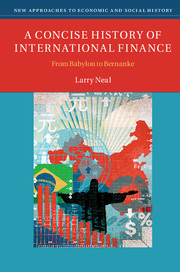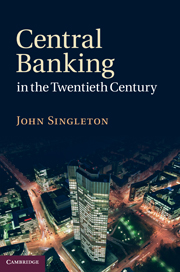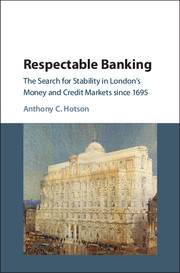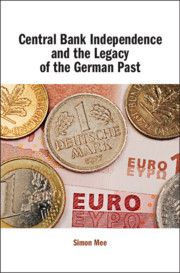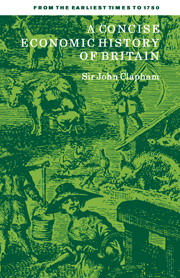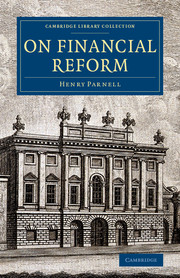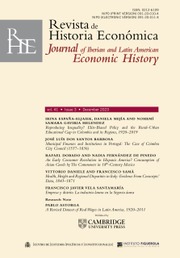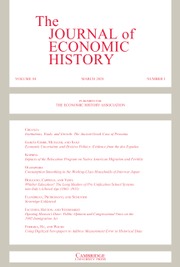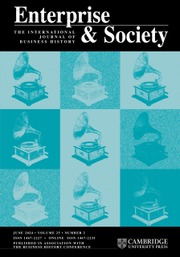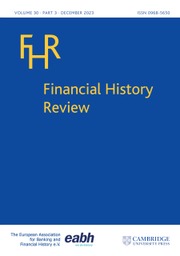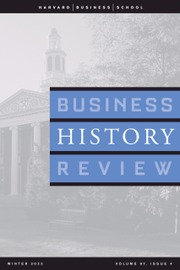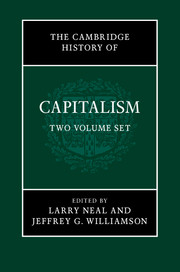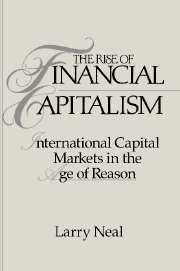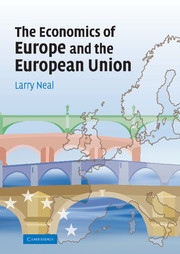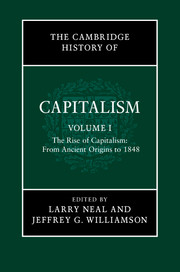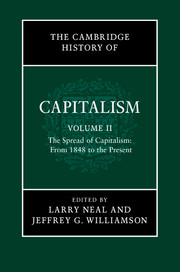A Concise History of International Finance
From Babylon to Bernanke
$32.99 (P)
Part of New Approaches to Economic and Social History
- Author: Larry Neal, University of Illinois, Urbana-Champaign
- Date Published: January 2016
- availability: Available
- format: Paperback
- isbn: 9781107621213
$
32.99
(P)
Paperback
-
Ever since the financial crisis of 2008, doubts have been raised about the future of capitalism. In this broad-ranging survey of financial capitalism from antiquity to the present, Larry Neal reveals the ways in which the financial innovations throughout history have increased trade and prosperity as well as improving standards of living. These innovations have, however, all too often led to financial crises as a result of the failure of effective coordination among banks, capital markets and governments. The book examines this key interrelationship between financial innovation, government regulation and financial crises across three thousand years, showing through past successes and failures the key factors that underpin any successful recovery and sustain economic growth. The result is both an essential introduction to financial capitalism and also a series of workable solutions that will help both to preserve the gains we have already achieved and to mitigate the dangers of future crises.
Read more- A global history of financial capitalism from ancient Babylon to the present day
- Covers both the contribution of financial innovations to economic growth and their part in generating financial crises
- Suggests solutions to the present financial crisis on the basis of the successes and failures of the past
Reviews & endorsements
"This is the most impressive, most comprehensive, and most up-to-date single volume history of finance there is. Its central argument about the beneficial effects of financial innovation - along with the many cautionary tales of how and why things go sour, of the consequences of adequate mechanisms for ensuring commitment and responsibility - make it at once a classic, whose influence will endure a long time."
Harold James, author of The End of Globalization: Lessons from the Great DepressionSee more reviews"This is an outstanding concise history of international finance. It documents the path of finance from the personal to the impersonal, from ancient to modern times. This is not merely a summary of what others have done, but soundly based on Larry Neal's own careful research. As Neal writes in chapter one, he wants to look historically at where there were effective solutions to financial difficulties and how these 'solutions' played out through time. The book is a splendid introduction to the history of international finance."
Mira Wilkins, co-author of Global Electrification: Multinational Enterprise and International Finance in the History of Light and Power, 1878–2007"A rich mix of wide-ranging, keenly known historical specifics, conceptual constructions, broad long-term horizons, and narrative unfolding. An erudite and thoughtful gem, reflecting a lifetime of scholarship and reflection."
Richard Roberts, author of Saving the City: The Great Financial Crisis of 1914"Did you know that modern international finance had its origin in financing the Crusades? Larry Neal reveals interconnections between international finance and wars, trade, governments and even religion in his concise history. [He] vividly chronicles a thousand years of financial innovations, demonstrating that financial crises gradually emerged as more potent stimuli to financial innovation than religion."
Peter Temin, co-author of Keynes: Useful Economics for the World Economy"As economists and policy makers are drawn to history for a deeper understanding of the wonders and dangers of financial innovation, Neal's outstanding scholarship provides the much-needed introduction to financial development from the Assyrian times to the present. It will remain the standard reference for years to come."
Gianni Toniolo, co-author of The World Economy Between the WarsCustomer reviews
Not yet reviewed
Be the first to review
Review was not posted due to profanity
×Product details
- Date Published: January 2016
- format: Paperback
- isbn: 9781107621213
- length: 376 pages
- dimensions: 227 x 152 x 18 mm
- weight: 0.59kg
- contains: 48 b/w illus. 5 tables
- availability: Available
Table of Contents
1. Introduction
2. Distant beginnings: the first 3,000 years
3. The Italians invent modern finance
4. The rise of international financial capitalism: the seventeenth century
5. The 'big bang' of financial capitalism: financing and refinancing the Mississippi and South Sea Companies, 1688–1720
6. The rise and spread of financial capitalism, 1720–89
7. Financial innovations during the 'birth of the modern', 1789–1830: a tale of three revolutions
8. British recovery and attempts to imitate in the US, France and Germany, 1825–50
9. Financial globalization takes off: the spread of sterling and the rise of the gold standard, 1848–79
10. The first global financial market and the classical gold standard, 1880–1914
11. The Thirty Years War and the disruption of international finance, 1914–44
12. The Bretton Woods era and the re-emergence of global finance, 1945–73
13. From turmoil to the 'Great Moderation', 1973–2007
14. The sub-prime crisis and the aftermath, 2007–14
References
Index.
Sorry, this resource is locked
Please register or sign in to request access. If you are having problems accessing these resources please email [email protected]
Register Sign in» Proceed
You are now leaving the Cambridge University Press website. Your eBook purchase and download will be completed by our partner www.ebooks.com. Please see the permission section of the www.ebooks.com catalogue page for details of the print & copy limits on our eBooks.
Continue ×Are you sure you want to delete your account?
This cannot be undone.
Thank you for your feedback which will help us improve our service.
If you requested a response, we will make sure to get back to you shortly.
×
